College of Science, Engineering & Technology
Dr Tarryn Lee Botha, a young researcher with great potential
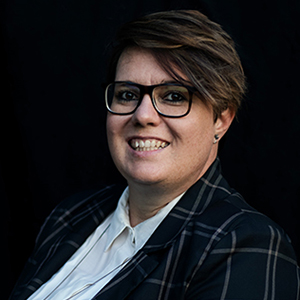
Dr Tarryn Lee Botha
What do we call a promising young researcher who, within five years of obtaining a PhD, is recognised as having the potential (demonstrated by research outputs) to establish himself or herself as a researcher and future leader in his or her field? A researcher with a Y1 National Research Foundation (NRF) rating.
Dr Tarryn Lee Botha, who was recently awarded an NRF rating of Y, is a researcher in aquatic ecotoxicology, "a scientific discipline studying the properties and behaviour of pollutants in aquatic ecosystems, as well as the impact of pollutants on organisms, populations and communities".
Botha is the first member of her family to study up to PhD level, thanks to the various support of her networks - family, friends, colleagues, mentors and national funding schemes. She believes young researchers should never let the box they were born into determine how far they can grow into who they are meant to be. "My father was a mechanic, my mother a secretary – I was the first one in my family to go on to further studies and they have been there with me all the way, supporting this unexpected, exciting journey," she reflected.
Botha is a Senior Lecturer at the Institute for Nanotechnology and Water Sustainability in the College of Science, Engineering and Technology. She is also an Extraordinary Senior Lecturer at the Water Research Group of the Unit for Environmental Sciences and Management at the North-West University.
Pleased about her rating, Botha said, "the NRF rating system not only ranks you according to your position in your field but also assists you in understanding your research journey and where you need to put more focus, it focuses you in not losing sight of the large scheme – which is using science for the betterment of our entire ecosphere".
Botha, an infinitely curious aquatic scientist for change, serves as an associate editor for Wiley Publishers’ Journal of Fish Biology. She is a council member of the Society of Environmental Toxicology and Chemistry in Africa, the secretary of the Southern African Society of Aquatic Scientists, a founder and chair of the Zebrafish Interest Group of South Africa and an exco member of the South African Association for Laboratory Animal Science.
Her list of professional roles and positions does not end there – she is also a member of Developing African Women in Academia, she has an expert role in the Organisation for Economic Co-operation and Development's Working Party on Manufactured Nanomaterials and she serves on the SABS Technical Committee for Nanotechnologies.
Aquatic ecotoxicology – looking at the safe development of nanotechnology
"Access to clean water is a human right and it is my responsibility as an aquatic scientist to produce knowledge on the state of the environment and potential associated risks of new technologies," said Botha. According to her, it is no longer acceptable to assess mortality as an endpoint. Instead, sub-lethal effects (such as physiological and behavioural changes) should receive attention before they become detrimental to human health.
Nanotechnology has become increasingly important in our daily lives given its extensive applications. These applications have been evident throughout the Covid-19 pandemic (for example, in high-throughput test kits and vaccine development). "However, the use of nanotechnology in itself could pose a risk. My research focuses on evaluating the hazards nanomaterials pose to aquatic ecosystems and uses zebrafish as a model for human health effects," she noted. Botha added that further research is required to ensure the safe production and release of nanomaterials in the environment.
Botha is currently working on a project funded by the Water Research Council, called the Contaminants of Emerging Concern Knowledge Hub. The project team are collating all data on contaminants available in literature into a user-friendly web-based map to allow for ease of access for researchers and policymakers. This map will be launched by September 2022.
In another project, Botha, together with her students and collaborators, are working on an initiative funded by the Department of Science and Innovation, called the Health, Safety and Environmental NanoRisk Platform. This initiative entails assessing the toxicity and bioaccumulation of nanomaterials in aquatic vertebrates.
* Compiled by Mpho Moloele, PR and Communications, Department of Research, Innovation and Commercialisation
Publish date: 2022-07-08 00:00:00.0

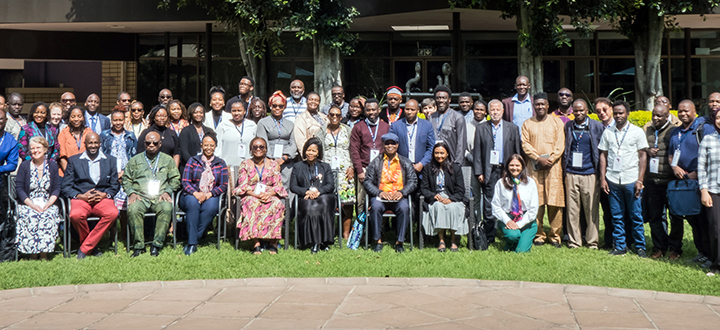 Social policy in post-Covid Africa: In search of an inclusive and equitable architecture
Social policy in post-Covid Africa: In search of an inclusive and equitable architecture
 Education in pursuit of social justice
Education in pursuit of social justice
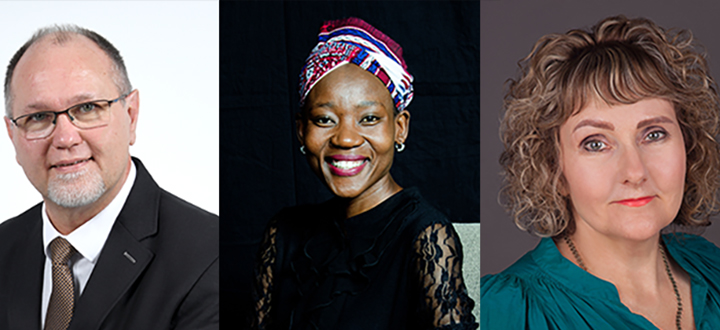 Unisa shows that developing countries are equal partners in research management and administration capacity development
Unisa shows that developing countries are equal partners in research management and administration capacity development
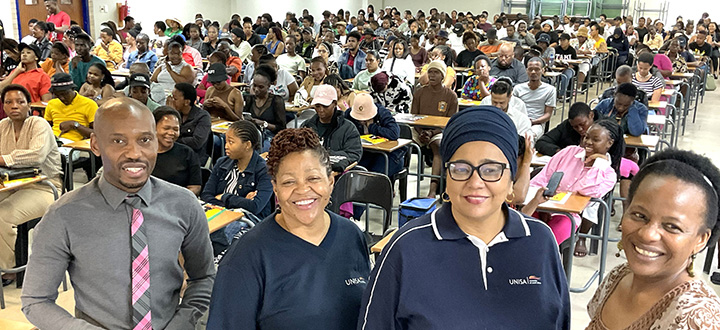 Unisa KZN Career Fair bridges the gap between students and employers
Unisa KZN Career Fair bridges the gap between students and employers
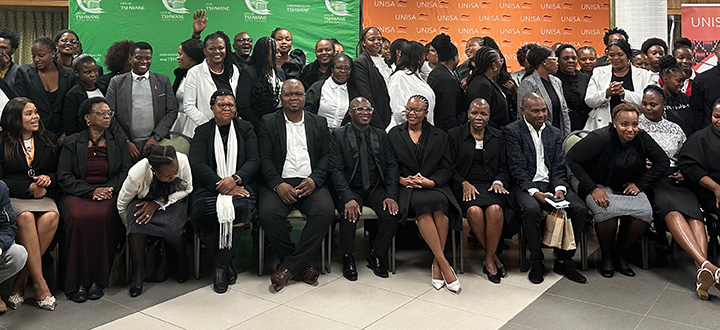 Unisa academics join hands to celebrate World Social Work Day
Unisa academics join hands to celebrate World Social Work Day